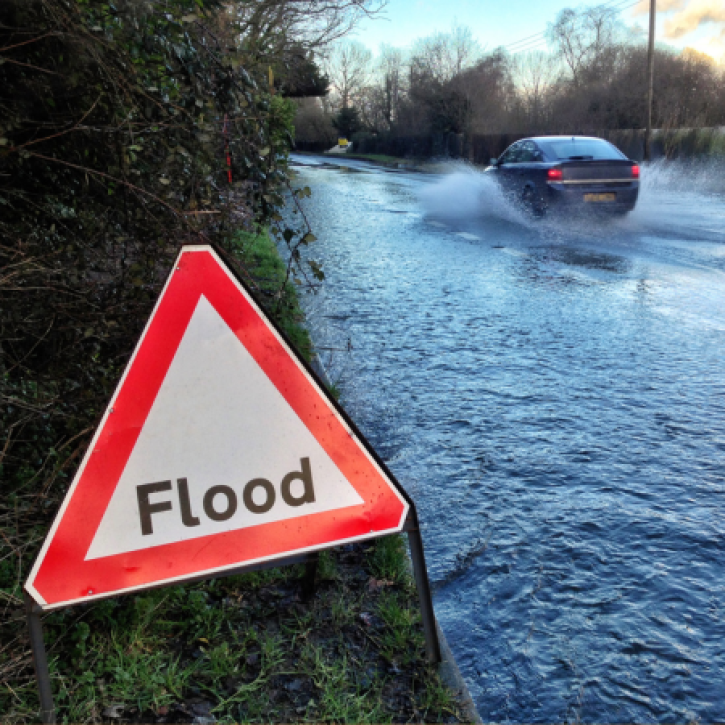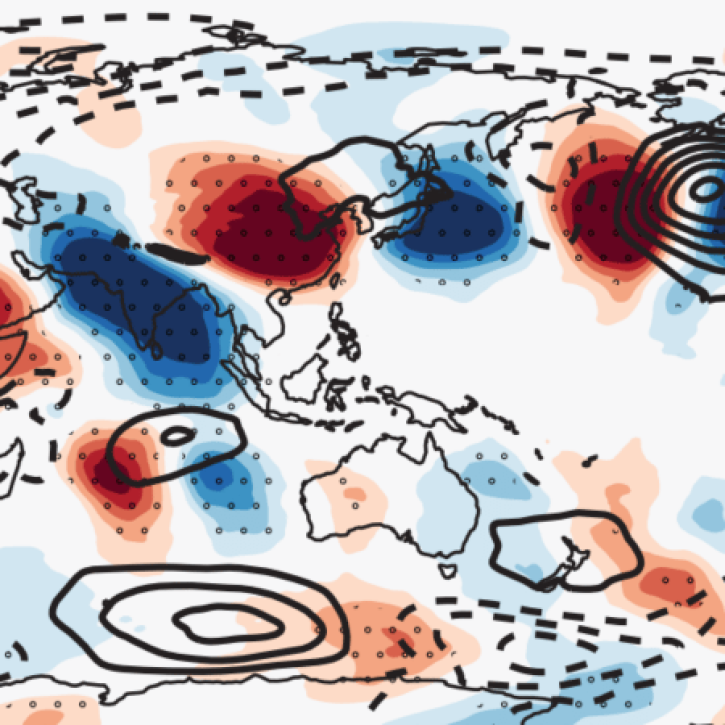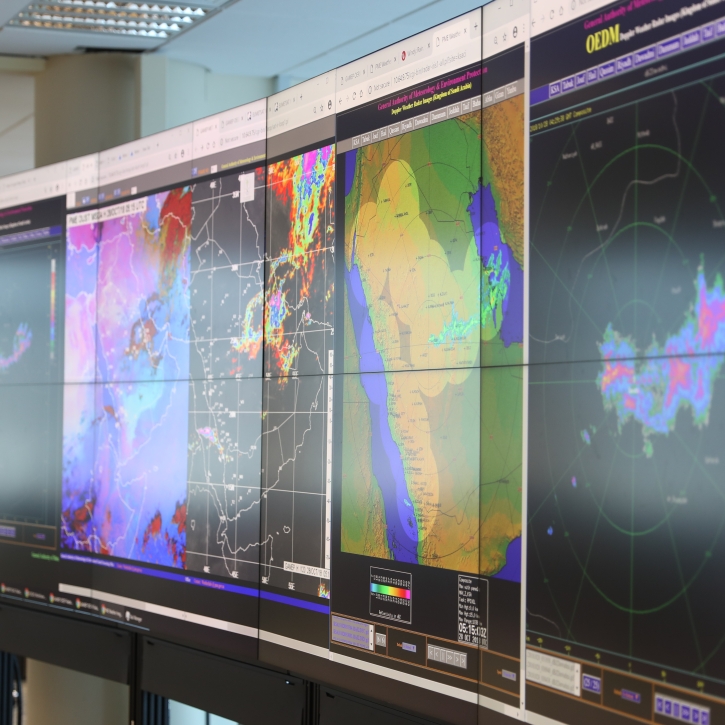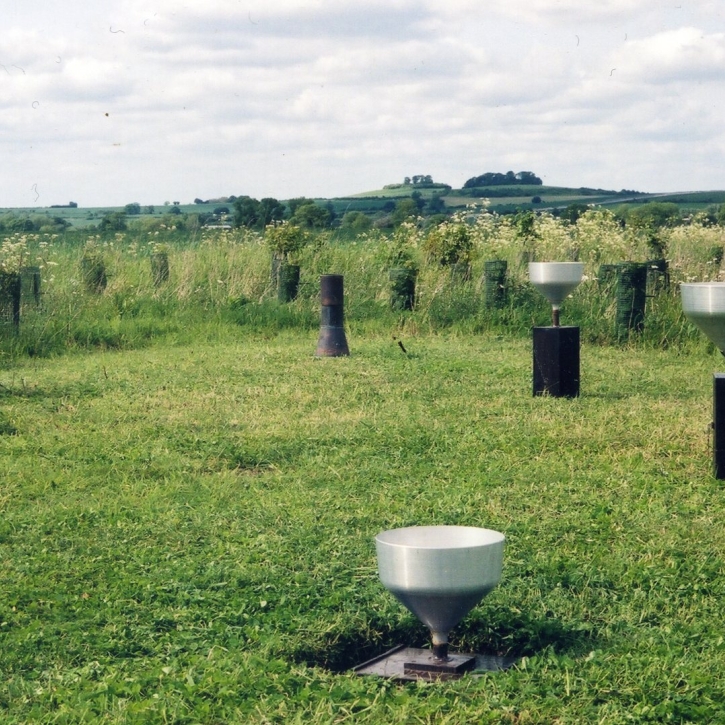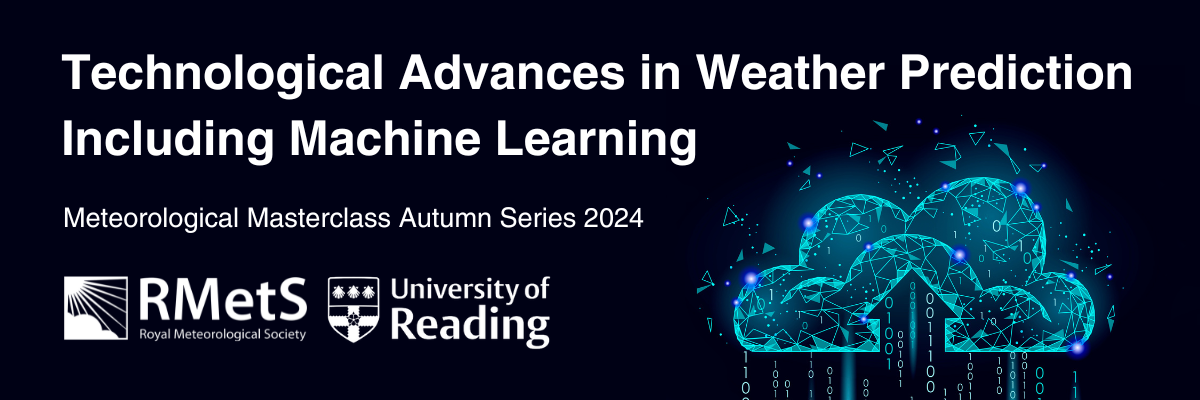

Masterclass | From High-Resolution to Global Storm Resolving Models: achievements and perspectives
LOCATION
Virtual - Hosted on Zoom
The increasing availability of high-performance computing has allowed the weather and climate modelling community to construct global coupled models that are increasingly capable of resolving many of the fundamental processes governing the earth system. More explicit representation of eddies in the ocean and of weather processes in the atmosphere has demonstrated how these phenomena contribute to the general circulation of the atmosphere and ocean, and how it is increasingly possible to mitigate our reliance on uncertain physical parameterisations when producing environmental predictions.
These advances have also demonstrated, e.g. as an outcome of HighResMIP, the potential for significantly reducing inter-model disagreement when using heterogenous ensembles for hindcasts and projections. So-called “weather-resolving” climate models more realistically represent the relative importance of remote and local processes governing the global energy and hydrological cycles, producing a notable degree converge at resolutions beyond 50km. The same models are also useful for studying how global teleconnections might influence the long-term regional changes in storm tracks, or for understanding changes in high-impact phenomena, such as Tropical and Extra-Tropical Cyclones, including their extra-tropical transition and their interactions with the large scale, e.g. the jet stream. Resolving the ocean mesoscale produces a larger degree of internal variability in the simulated climate system and, consequently, a broader range of possible unfolding of future climates, including for extremes.
Some of the leading Global Climate Models have already started to operate in the so-called “grey zone”, at horizontal resolutions in the range of 1-10 km (now called Global Storm Resolving Models), removing some long-standing errors in the simulation of organised travelling convection, and of the diurnal cycle of precipitation, as well as improving aspects of the precipitation intensity/frequency relationship. However, major uncertainties remain with respect to the adequacy of key parameterisations, such as turbulence and microphysics, when operating in the grey zone. These are open problems, continuing to motivate the development of true global cloud-resolving capabilities.
Major challenges remain in terms of code efficiency, scalability, portability, reproducibility, particularly when adapting to ever-changing computer architectures, but major advances in simulation technology, selective use of artificial intelligence, and new paradigms such as the so-called “separation of concerns”, have been effectively demonstrated, indicating that km-scale global modelling is practically applicable to a wide range of environmental problems.
Speaker
Professor Pier Luigi Vidale

Pier Luigi Vidale is Professor of Climate System Science at the University of Meteorology Dept. and Senior Scientist at the Climate Directorate of the National Centre for Atmospheric Science (NCAS-Climate) in Reading, leading and developing research on High-Resolution Global Climate Modelling and biosphere-atmosphere interactions.
Present Appointments:
- Chair of Climate System Science at the University of Reading (UoR), in the School of Mathematical and Physical Sciences (Department of Meteorology).
- Senior Scientist at the National Centre for Atmospheric Science, as Head of:
- High-Resolution Climate Modelling (HRCM) research programme
- Land Surface Processes group.
Responder
Chris Roberts

Chris Roberts is a Senior Scientist working in the Earth System Predictability Section of the ECMWF Research Department. Chris works on the development and evaluation of the ECMWF sub-seasonal prediction system, which includes scientific research to understand the sources of predictability and origins of systematic model errors in ECMWF forecasts. Chris is also a work package lead and member of the Scientific Steering Committee for the European Eddy-Rich Earth System Models (EERIE) project. Prior to joining ECMWF in 2016, Chris worked as a research scientist at the Met Office Hadley Centre.
Registration
REGISTRATION IS NOW CLOSED
Registration for this event is closed.
If you have any queries with regards to this event or require any further information please contact us at meetings@rmets.org.
We take data privacy seriously. Please read the RMetS privacy policy to find out more.
Masterclass Series Abstract
Continuing its online Meteorological Masterclasses in partnership with the University of Reading, the Society is pleased to announce a new series for Autumn 2024.
During this series, three leading experts from the University of Reading will discuss the latest scientific advances for understanding and predicting weather, climate, and its impacts.
These masterclasses are intended to provide support for professionals working in Meteorology and Climate Science, and its operational applications who wish to remain up to date on recent scientific developments in the field.
The increasing availability of high-performance computing has allowed the weather and climate modelling community to construct global coupled models that are increasingly capable of resolving many of the fundamental processes governing the earth system. More explicit representation of eddies in the ocean and of weather processes in the atmosphere has demonstrated how these phenomena contribute to the general circulation of the atmosphere and ocean, and how it is increasingly possible to mitigate our reliance on uncertain physical parameterisations when producing environmental predictions.
These advances have also demonstrated, e.g. as an outcome of HighResMIP, the potential for significantly reducing inter-model disagreement when using heterogenous ensembles for hindcasts and projections. So-called “weather-resolving” climate models more realistically represent the relative importance of remote and local processes governing the global energy and hydrological cycles, producing a notable degree converge at resolutions beyond 50km. The same models are also useful for studying how global teleconnections might influence the long-term regional changes in storm tracks, or for understanding changes in high-impact phenomena, such as Tropical and Extra-Tropical Cyclones, including their extra-tropical transition and their interactions with the large scale, e.g. the jet stream. Resolving the ocean mesoscale produces a larger degree of internal variability in the simulated climate system and, consequently, a broader range of possible unfolding of future climates, including for extremes.
Some of the leading Global Climate Models have already started to operate in the so-called “grey zone”, at horizontal resolutions in the range of 1-10 km (now called Global Storm Resolving Models), removing some long-standing errors in the simulation of organised travelling convection, and of the diurnal cycle of precipitation, as well as improving aspects of the precipitation intensity/frequency relationship. However, major uncertainties remain with respect to the adequacy of key parameterisations, such as turbulence and microphysics, when operating in the grey zone. These are open problems, continuing to motivate the development of true global cloud-resolving capabilities.
Major challenges remain in terms of code efficiency, scalability, portability, reproducibility, particularly when adapting to ever-changing computer architectures, but major advances in simulation technology, selective use of artificial intelligence, and new paradigms such as the so-called “separation of concerns”, have been effectively demonstrated, indicating that km-scale global modelling is practically applicable to a wide range of environmental problems.
Speaker
Professor Pier Luigi Vidale

Pier Luigi Vidale is Professor of Climate System Science at the University of Meteorology Dept. and Senior Scientist at the Climate Directorate of the National Centre for Atmospheric Science (NCAS-Climate) in Reading, leading and developing research on High-Resolution Global Climate Modelling and biosphere-atmosphere interactions.
Present Appointments:
- Chair of Climate System Science at the University of Reading (UoR), in the School of Mathematical and Physical Sciences (Department of Meteorology).
- Senior Scientist at the National Centre for Atmospheric Science, as Head of:
- High-Resolution Climate Modelling (HRCM) research programme
- Land Surface Processes group.
Responder
Chris Roberts

Chris Roberts is a Senior Scientist working in the Earth System Predictability Section of the ECMWF Research Department. Chris works on the development and evaluation of the ECMWF sub-seasonal prediction system, which includes scientific research to understand the sources of predictability and origins of systematic model errors in ECMWF forecasts. Chris is also a work package lead and member of the Scientific Steering Committee for the European Eddy-Rich Earth System Models (EERIE) project. Prior to joining ECMWF in 2016, Chris worked as a research scientist at the Met Office Hadley Centre.
Registration
REGISTRATION IS NOW CLOSED
Registration for this event is closed.
If you have any queries with regards to this event or require any further information please contact us at meetings@rmets.org.
We take data privacy seriously. Please read the RMetS privacy policy to find out more.
Masterclass Series Abstract
Continuing its online Meteorological Masterclasses in partnership with the University of Reading, the Society is pleased to announce a new series for Autumn 2024.
During this series, three leading experts from the University of Reading will discuss the latest scientific advances for understanding and predicting weather, climate, and its impacts.
These masterclasses are intended to provide support for professionals working in Meteorology and Climate Science, and its operational applications who wish to remain up to date on recent scientific developments in the field.


